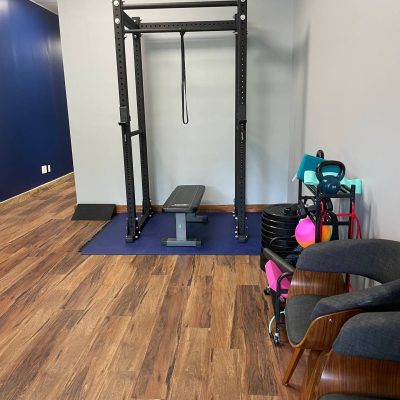Breast cancer treatment can have a significant impact on a woman’s physical and emotional well-being, including her intimate life. Many women face challenges and changes in sexual function and intimacy following breast cancer treatment. Pelvic floor therapy offers a supportive and effective approach to help women navigate these changes, restore pelvic health, and reclaim their intimacy. In this blog post, we will explore how pelvic floor therapy can help women regain confidence, address physical concerns, and foster a fulfilling intimate life after breast cancer treatment.
Understanding the Impact of Breast Cancer Treatment on Intimacy:
Breast cancer treatments such as surgery, radiation therapy, and chemotherapy can have various effects on a woman’s body, which may affect intimacy. Some common concerns include:
Reduced Sexual Desire: Treatments and medications can impact hormone levels, leading to a decrease in sexual desire or libido.
Vaginal Dryness: Hormonal changes and certain treatments can cause vaginal dryness, making intercourse uncomfortable or painful.
Scar Tissue and Sensitivity: Surgery and radiation therapy can result in scar tissue formation and changes in sensation, affecting arousal and pleasure.
Body Image and Emotional Challenges: Breast cancer treatments may lead to changes in body image, self-esteem, and emotional well-being, which can impact sexual intimacy.
How Pelvic Floor Therapy Can Help:
Pelvic floor therapy focuses on the muscles, ligaments, and connective tissues that support the pelvic organs, including those involved in sexual function. Here are ways in which pelvic floor therapy can help women regain intimacy after breast cancer treatment:
Pelvic Floor Muscle Rehabilitation: Pelvic floor therapy includes exercises to strengthen and coordinate the pelvic floor muscles. These exercises can enhance muscle strength and extensibility, improve blood flow, and increase vaginal tone, helping to address concerns such as vaginal tightness, reduced sensation, and pain during intercourse.
Vaginal Dilator Therapy: Pelvic floor therapists can guide women in using vaginal dilators, which are gentle, graduated devices that help stretch and relax the vaginal tissues. Dilator therapy can help combat vaginal tightness, promote tissue healing, and increase comfort during sexual activity.
Scar Tissue Release: Pelvic floor therapists are trained in techniques to release scar tissue and improve tissue mobility. Manual therapy can help address adhesions, reduce pain, and improve overall comfort during intimacy.
Education and Communication: Pelvic floor therapists provide education on post-treatment changes, sexual health, and techniques for enhancing pleasure and intimacy. They create a safe space for open communication, addressing concerns, and offering guidance on positioning, lubricants, and alternative forms of intimacy.
Emotional Support: Pelvic floor therapy acknowledges the emotional challenges that arise from breast cancer treatment. Therapists provide empathetic support, validate emotions, and offer counseling resources if needed. Addressing emotional well-being is an integral part of nurturing intimacy.
Bladder and Bowel Function: Breast cancer treatment can affect bladder and bowel function, leading to symptoms such as urinary urgency, frequency, constipation, or painful bowel movements. Pelvic floor therapy includes bladder and bowel retraining techniques, education on proper voiding and bowel habits, and exercises to improve pelvic floor muscle coordination. These interventions can help individuals regain control over their bladder and bowel function and minimize associated symptoms.
Tips for Women Seeking Intimacy After Breast Cancer Treatment:
In addition to pelvic floor therapy, here are some practical tips for women navigating intimacy after breast cancer treatment:
Open Communication: Share your concerns, desires, and boundaries with your partner. Effective communication fosters understanding, empathy, and connection.
Lubrication: Use water-based or silicone based lubricants to alleviate vaginal dryness and enhance comfort during intimacy.
Experimentation and Exploration: Be open to trying new positions, techniques, and forms of intimacy that accommodate your comfort level and physical needs.
Self-Care and Self-Compassion: Prioritize self-care practices such as relaxation techniques, mindfulness, and activities that bring you joy and help you reconnect with your body.
Seek Professional Support: Consider therapy or counseling to address any emotional concerns and to navigate the emotional impact of breast cancer treatment on intimacy.
Breast cancer treatment can bring about physical and emotional changes that impact a woman’s intimate life. Pelvic floor therapy offers a comprehensive approach to address these concerns, restore pelvic health, and support women in reclaiming intimacy after treatment. By working with a pelvic floor therapist, women can strengthen their pelvic floor muscles, address physical discomfort, receive guidance on techniques and resources, and receive the emotional support needed for a fulfilling and satisfying intimate life. Remember, you deserve a nurturing and intimate connection, and pelvic floor therapy can be a valuable tool on your journey to reclaiming it.
Magic City Physical Therapy in Birmingham, Alabama, has highly qualified Pelvic Floor and Lymphedema Physical Therapists to help alleviate side effects of breast cancer treatments.







